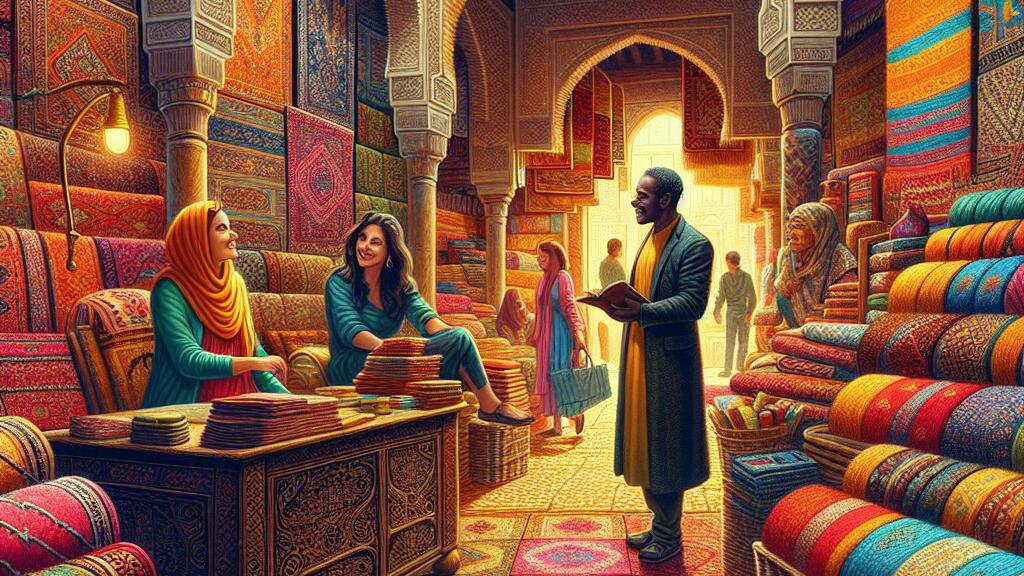
Table Of Contents
Maintenance and Care Tips
Taking care of your Moroccan rug involves regular cleaning and mindful maintenance. Vacuuming your rug once a week can help remove dirt and dust, preserving its vibrant colors. For deeper cleans, consider using a professional cleaning service that specializes in wool or natural fibers. Avoid harsh chemicals that can damage the delicate threads, opting instead for mild soap and water if needed.
When it comes to placement, avoid high-traffic areas to prevent wear and tear. Sunlight can fade the colors over time, so rotating the rug periodically and placing it in shaded areas can help maintain its original hue. Spot cleaning spills immediately prevents stains from setting in and prolongs the life of the rug. These simple steps ensure that your Moroccan rug remains a beautiful centerpiece in your home for years to come.
Continue to read this blog post for more great tips.
Ensuring Longevity of Your Moroccan Rug
To maintain the beauty and durability of your Moroccan rug, regular cleaning is essential. Vacuuming once a week prevents dirt buildup while protecting delicate fibers. For deeper cleans, consider professional services or carefully spot-clean using mild soap and water. Avoid harsh chemicals that can damage the dye and weave.
Proper placement also contributes to longevity. Avoid areas with excessive sunlight to prevent fading. Using a rug pad protects the underside and adds cushioning, reducing wear over time. Rotating the rug occasionally encourages even wear and maintains its shape. Taking these precautions ensures your Moroccan rug remains a cherished element of your home for years to come.
The Investment Value of Moroccan Rugs
Moroccan rugs have gained recognition as not just decorative items but also valuable investments. As the demand for unique, handcrafted textiles rises, so does the potential for increased resale value. Buyers are increasingly looking for distinctive pieces that tell a story. Those who invest in high-quality rugs can thus expect their value to appreciate over time, especially if the rugs are well-maintained and reflect traditional craftsmanship.
Market trends indicate a growing interest in artisanal products within the luxury sector. With the global shift toward valuing sustainability and heritage, Moroccan rugs fit perfectly into this narrative. Collectors and interior designers alike are increasingly seeking these textiles, which not only elevate home décor but also carry cultural significance. This combination of aesthetics and craftsmanship makes Moroccan rugs an appealing option for both personal enjoyment and long-term investment.
Analyzing Market Trends and Resale Potential
The demand for Moroccan rugs has seen a steady increase in recent years, fueled by a growing appreciation for artisanal craftsmanship and unique design. Buyers are increasingly looking for distinctive home decor items, with Moroccan rugs standing out due to their vibrant colors and intricate patterns. Market trends suggest that these rugs not only appeal to new homeowners but also to interior designers seeking to add a touch of global elegance to their projects.
Resale potential is another aspect that enhances their appeal as an investment. Authentic Moroccan rugs often maintain or even increase in value over time, particularly those that are handwoven and feature traditional designs. Collectors and enthusiasts are willing to pay a premium for distinctive pieces, making them a worthwhile consideration for both aesthetic enjoyment and financial investment.
Sustainable and Ethical Sourcing
Moroccan rugs often reflect a deep-rooted cultural heritage. Artisans utilize traditional weaving techniques passed down through generations, ensuring each piece is unique and imbued with history. Sourcing materials from local environments enhances the authenticity of these rugs. Natural fibers such as wool and cotton dominate, offering not only durability but also a sustainable approach to crafting.
Supporting local artisans promotes ethical practices within the industry. Many families rely on rug-making as their primary means of income, allowing them to sustain their communities. By investing in these handmade products, consumers contribute to economic stability and the preservation of traditional craftsmanship. This connection fosters a greater appreciation for the art of rug-making and encourages responsible consumption.
The Importance of Supporting Local Artisans
Investing in Moroccan rugs goes beyond acquiring a beautiful decorative item; it supports the livelihoods of local artisans who pour their skill and culture into each piece. These craftsmen and craftswomen often come from generations of weavers, holding onto traditional techniques that have been passed down through their families. By purchasing directly from them, buyers not only receive authentic products but also contribute to the preservation of age-old artistry that may otherwise fade in the modern marketplace.
The connection between the buyer and artisan fosters a sense of community. Many artisans operate within cooperatives that promote fair trade principles, ensuring equitable earnings and sustainable working conditions. Supporting these local entities empowers craftsmen economically and encourages a vibrant cultural exchange. As demand for ethically sourced products rises, investing in Moroccan rugs becomes an opportunity to appreciate not only their aesthetic appeal but also the rich stories and traditions they embody.
FAQS
Are Moroccan rugs still in style in 2023?
Yes, Moroccan rugs continue to be popular in 2023, valued for their unique designs, craftsmanship, and ability to complement various interior styles.
How do I maintain my Moroccan rug?
Regular vacuuming, spot cleaning stains, and professional cleaning every few years can help maintain the beauty of your Moroccan rug.
What factors contribute to the investment value of Moroccan rugs?
The rarity of materials, craftsmanship, and the designer’s reputation can significantly influence the investment value of Moroccan rugs.
Are Moroccan rugs ethically sourced?
Many Moroccan rugs are produced using sustainable practices, with a focus on supporting local artisans and preserving traditional weaving techniques.
What should I consider when purchasing a Moroccan rug?
Consider the rug's authenticity, quality of materials, design, and the reputation of the seller to ensure you are making a worthwhile investment.